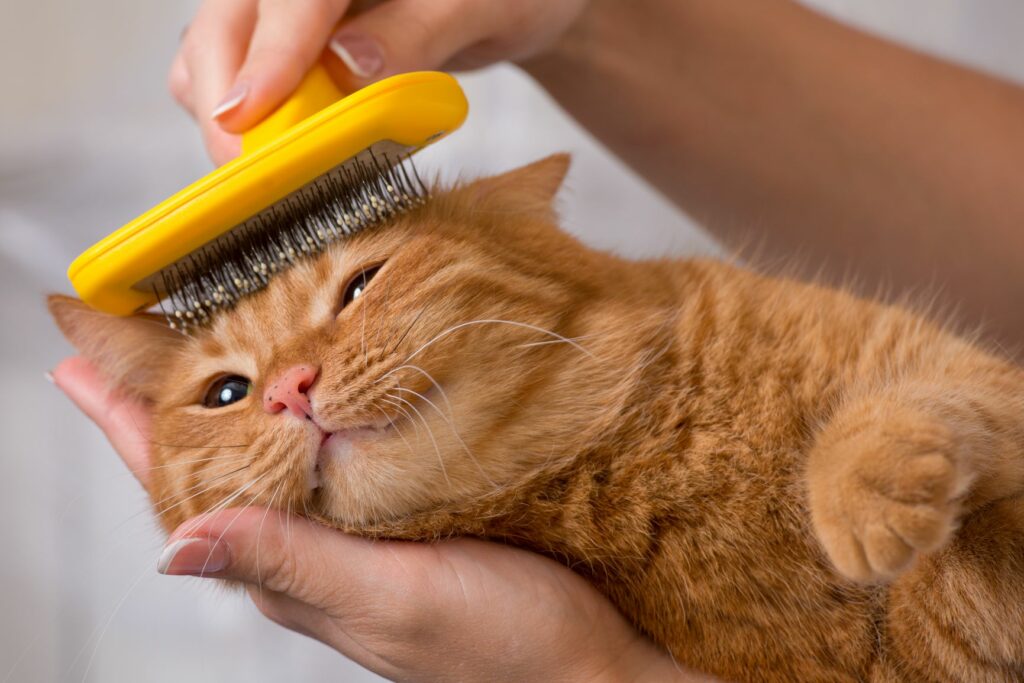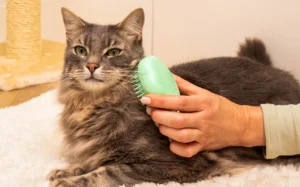Cats are often said to be independent, but when it comes to their health and well-being, they depend on their people. Skin health is an important part of caring for your cat. Just like humans, cats can have skin problems that require care and attention. In this article, we discuss some important ways to keep your cat’s skin healthy.
Quickly understand your cat’s skin
For cats, their skin is the largest organ of their body and protects them from the outside world. Cats’ skin is more sensitive than ours and therefore needs extra care and attention. Understanding the basics of cat skin can help you figure out what’s wrong and how to fix it.
Common skin problems in cats
Cat owners should be aware of some common skin problems their pets may have. The most common problems with cats’ skin and coat are dry skin, runaways, parasites and allergies.
regular care
Regular cleaning is important to keep your cat’s skin healthy and problem-free. This usually includes brushing teeth, bathing and trimming nails to prevent tangles and reduce the risk of skin problems.
Choose the right items
When choosing care products for your cat, it is important to purchase products that are specifically designed for cats. Skin-friendly shampoos, conditioners, sprays and moisturizers all fall into this category.
What to eat to keep your skin healthy
Eating a balanced diet is very important to keep your skin healthy and your overall health in good condition. Make sure your cat’s food contains important nutrients, such as omega-3 fatty acids, which can help keep the skin and coat healthy.
things in the area
The health of your cat’s skin can also be affected by environmental factors. Providing outdoor cats with sun protection and ensuring their indoor environment is safe can help keep their skin healthy and reduce the risk of skin cancer.
skin problems
To quickly detect and treat skin problems, it is important to pay attention to their signs. Cats often develop skin problems that manifest as redness, itching, excessive scratching and hair loss.
Talk to the vet
It’s important to take your cat to the vet for regular checkups to monitor his overall health, including the condition of his skin. If your cat has skin problems, your vet can provide you with professional advice and treatment options.
Kitchen skin care recipes
Besides going to the vet, there are some things you can do at home to help cats with minor skin problems. Aloe vera, coconut oil, and oatmeal baths are all natural ways to soothe and help heal sensitive skin.
Precaution
To prevent problems with your cat’s skin, it is important to take preventive measures. This includes removing lice daily, carefully checking your skin for signs of problems, and keeping your living space clean.
In summary
Taking care of your cat’s skin is an important part of being a caring pet owner. By following these tips and understanding their skin needs, you can help your cat stay healthy, happy and relaxed.
Frequently Asked Questions:
How often should I brush my cat?
This depends on the type of cat you have and the length of its coat, but usually once a week is sufficient.
Can I wash my cat with human shampoo?
No, shampoos designed for humans may be too strong for cats’ sensitive skin. Use items designed specifically for cats.
What should I do if I find something that escaped from my cat?
Discuss the best flea treatments for your cat and home with your veterinarian.
Does your cat’s food contain nutrients that can help his skin?
Taking an omega-3 fatty acid supplement can help keep your skin and coat healthy and shiny.
Should I be concerned if my cat’s skin is dry and flaky?
Dry, flaky skin can be a sign of a deeper problem. Talk to your vet about the proper way to diagnose and treat your pet.



